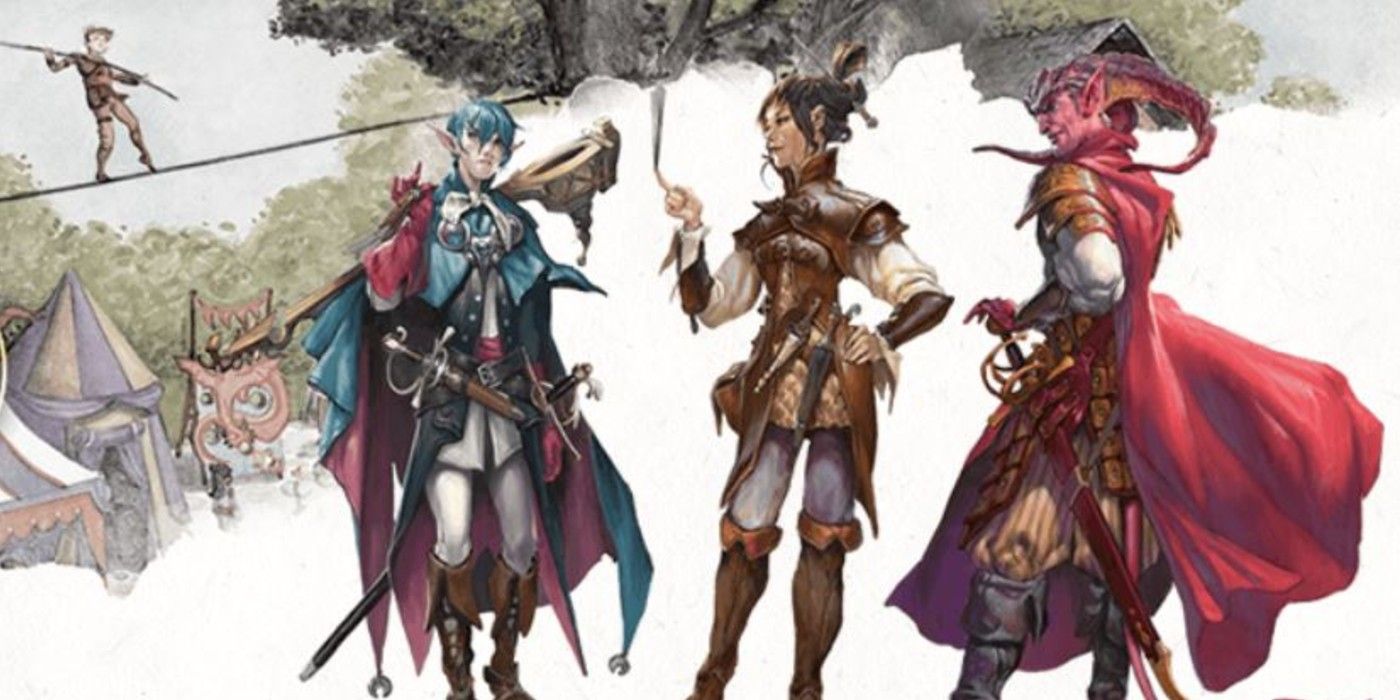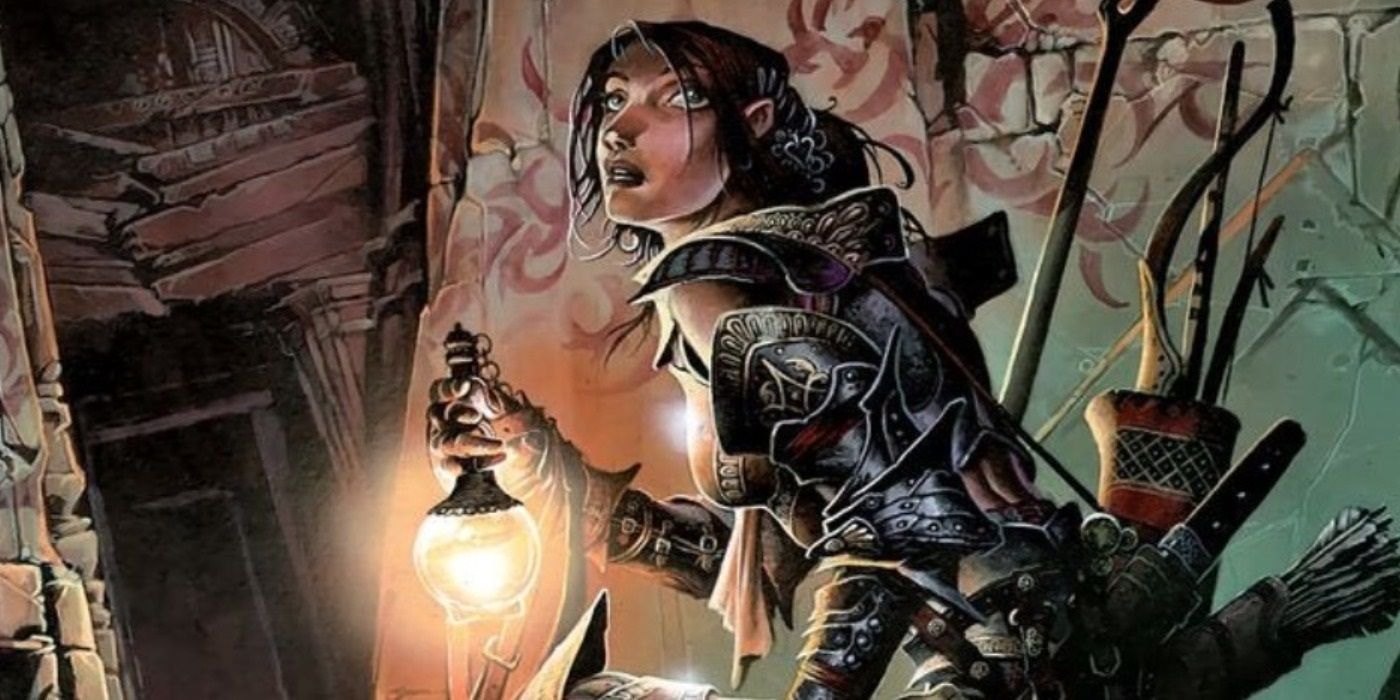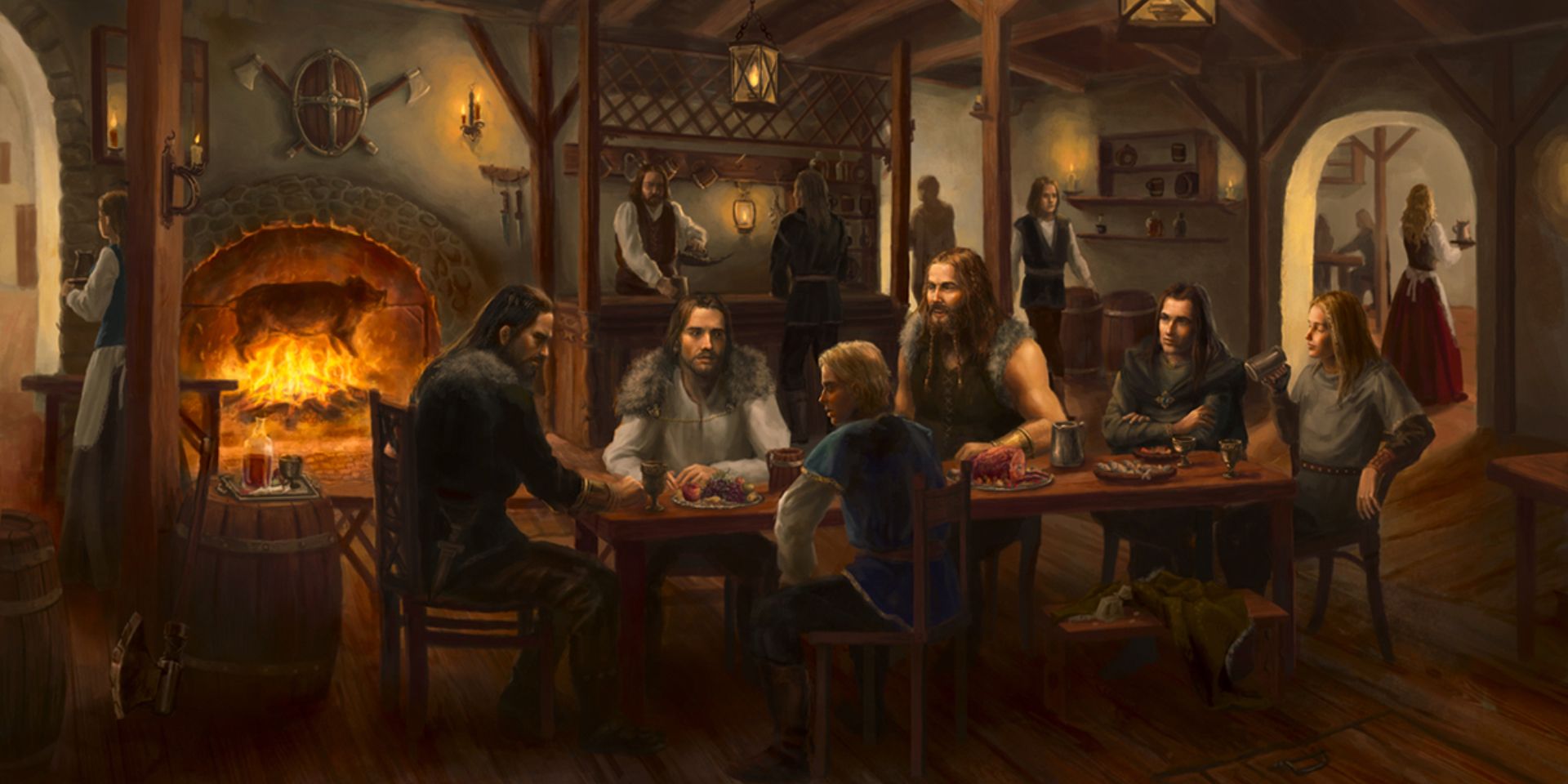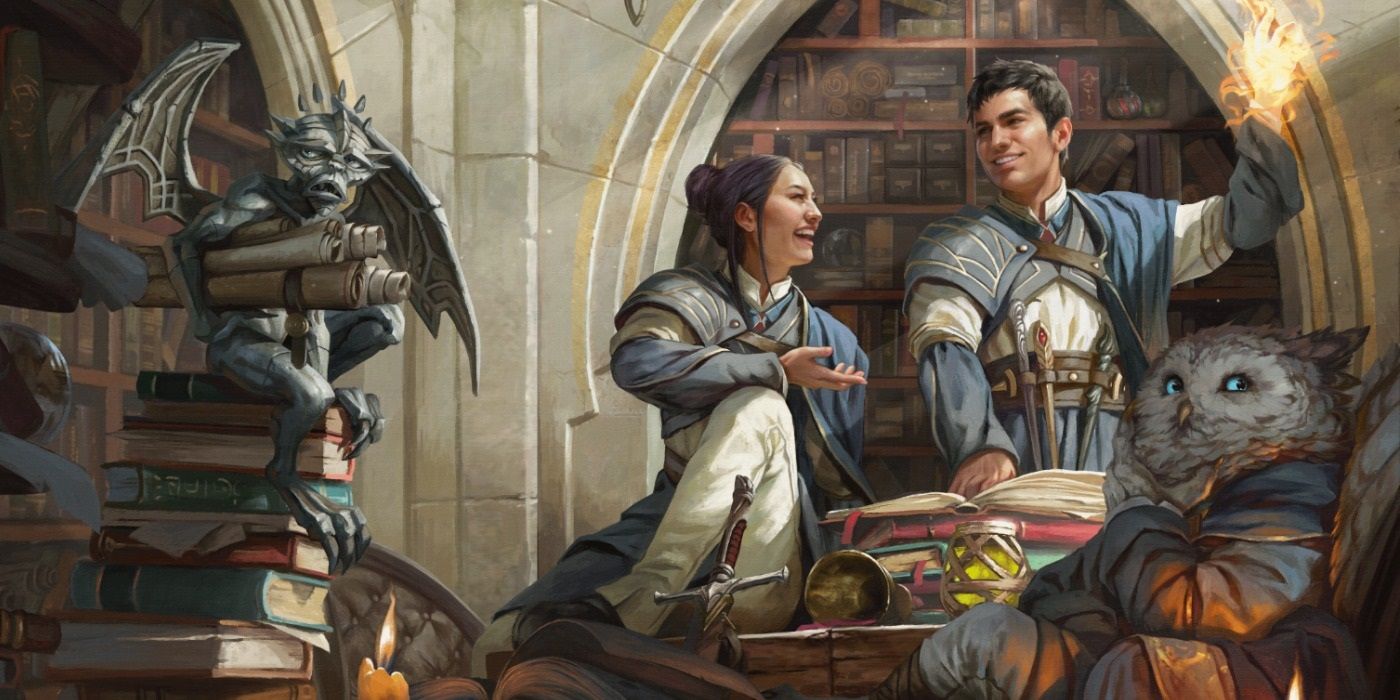There are numerous approaches to success in combat in Dungeons & Dragons, but outside of battle most challenges are addressed by the skill system. There are 18 total skills in 5e D&D, and with proper build planning a character can have every one of these skills trained. This skill-focused build also includes nine skills with Expertise for double the proficiency bonus, and the Rogue ability Reliable Talent making every proficient roll count as a 10 if a 9 or lower is rolled on the d20. A skill mastery-focused D&D character makes sacrifices to combat efficacy, but it can be a huge benefit in campaigns that focus on a variety of non-combat challenges, or games where every other player has a highly optimized battle build planned.
When planning a skill master build, knowing the best sources for D&D skill training and Expertise is vital. The Skilled feat can be taken once by any character to grant training in three skills. Characters of the Human, Half-Elf, and Half-Orc races are eligible for the Prodigy feat, which grants training in a skill, a tool, and a language, as well as Expertise in one skill. A single level of Cleric with the Knowledge Domain grants proficiency as well as Expertise in two Intelligence-based knowledge skills. Two levels in Warlock offers access to the Beguiling Influence Invocation, which grants proficiency in Persuasion and Deception. Multi-classing into Rogue, Ranger, or Bard, grants a skill proficiency, while 3 levels in Bard is enough to gain 2 additional Expertise skills, and taking the Bard’s College of Lore subclass offers an additional 3 trained skills.
Putting these elements together, a player can build a versatile skill master using D&D's multiclassing rules. Starting with a minimum of 13 in Dexterity, Wisdom, and Charisma is required for multi-classing prerequisites, which is easily accomplished with the Point Buy system. Most backgrounds offer training in 2 skills. Though the Half-Elf race starts with 2 additional skills, Dungeons & Dragons' Variant Human is a better choice, as it starts with 1 additional skill as well as a Feat. Beginning as a Rogue at level 1 grants 4 trained class skills and 2 Expertise selections. By selecting Skilled as the starting feat from Variant human, the character can begin with 10 trained skills, 2 with Expertise.
Players Should Select D&D Expertise Skills Based On The Campaign
Multi-classing to Cleric at level 2, and selecting the Knowledge Cleric domain, grants training and Expertise in 2 skills chosen from Arcana, History, Nature, or Religion. Another multi-class to Bard at level 3 adds another trained skill, and staying with the class until Bard 3 adds two more Expertise skills from the class, as well as three trained skills if the player selects the College of Lore. At level 5, the build has training in 16 of the game’s 18 skills, and expertise in six of those trained skills. Returning to the Rogue class for another 5 levels adds 2 more Expertise skills at Rogue 6, while selecting the Prodigy Feat at Rogue 4 adds another trained skill as well as an Expertise choice. At character level 10, this build is a Rogue 6/Cleric 1/Bard 3, with training in 17 skills, and Expertise in 9 of those.
For the remaining 10 character levels, 5 more should go into Rogue to access the pivotal Rogue 11 ability Reliable Talent, to ensure no proficient ability check ever rolls under a 10. A single multi-class level in D&D's Ranger class provides training in the last of D&D’s 18 skills, and taking 5 Ranger levels total offers access to Extra Attack if the player wishes to have some consideration towards combat utility. With Reliable Talent, combined with all trained skills, half of them with Expertise, Dungeons & Dragons players may be unable to fail the majority of the skill checks in many official D&D modules.
Players should ensure their Expertise choices go towards skills that are the most often rolled in their campaign. While these might vary from game to game, skills like Perception, Investigation, and Insight cover most forms of detection and investigation, Religion and Arcana are solid choices for the Expertise granted from the Cleric’s Knowledge domain, and Persuasion and Diplomacy are good choices for social encounters. Stealth Expertise is valuable for a D&D scout, and helpful for the first round of combat in many cases, and Athletics expertise aids with many physical challenges, as well as in escaping or initiating the Grab maneuver.
A D&D Skill Master Excels Outside Of Combat, But Can Still Contribute
If following the build noted above, a Variant Human with a final class level split of Rogue 11/Ranger 5/Bard 3/Cleric 1, the player has 3 remaining choices between D&D Feats and Ability Score increases, after accounting for Skilled and Prodigy. Selecting Observant increases both Passive Perception and Passive Investigation by 5, making it highly unlikely anything will pass the character’s notice, when paired with Expertise in those skills. Remaining feats could go to universally helpful feats like Lucky and Toughness, or the character could attempt to add some combat efficacy with Crossbow Expert and Sharpshooter.
As many of the character’s ability score points, when using Point Buy, go into meeting multi-classing prerequisites, in high magic games the skill master should try to obtain stat replacing D&D magic items to bolster their weaker base stats. An Amulet of Health and a Headband of Intellect can set the character’s Constitution and Intelligence to 19, while a Belt of Giant Strength allows for Strength scores beyond the normal maximum of 20.
Though this build offers 6d6 Sneak Attack dice from the 11 Rogue levels, they are far from optimized for combat, even if they elect to take the 5 Ranger levels for Extra Attack. The Mastermind rogue subclass is an ideal pairing, as its ability to aid D&D party members with an improved Help action, granting advantage from a distance, and as a Bonus action, still allows them to a contribute. If the party contains a spellcaster with access to the Polymorph spell, the skill master character is an ideal candidate to polymorph into a more powerful monstrous form during battles.
Skill Masters Are D&D Heroes Who Do More Than Slay Monsters
There are other approaches to a skill master character, such as those using the Half Elf race or incorporating 2 Warlock levels for the Beguiling Influence Invocation. Players should not ignore Tools either, as Tool proficiencies may be as vital as skills in some games, particularly Thieves Tools, which could be worth an Expertise selection, granted by Rogue, in lieu of a skill, in games where traps and locks are a focus. Combat is often central to Dungeons & Dragons but building a skill-focused character offers a chance to play a different sort of hero. The skill master can thrive during investigations, social interactions, and lore-based challenges, as well as physical tests of athleticism. Whatever curves and challenges the Dungeon Master throws at the players outside of combat, this character ensures the party has the right skills to overcome them.




